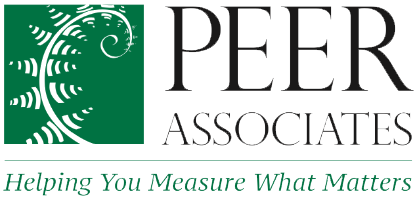“You Don’t Know What You’ve Got til it’s Gone”: Can nature-based learning help kids get back to school in Covid times?
The other day as I looked at my three adolescent children, I found myself wondering if their cohort of peers might someday be referred to as “Covid Kids.” Not (knock wood) kids who necessarily had the disease, but those who shared the distinction of interrupted schooling and, in some cases, heavy stress over uncertainties, witnessing their adult population flailing to figure out what to do. Covid Kids, as in, “We need to let them into this college...give them this job... even though they’re not quite up to standard. They’re Covid Kids.”
And I look at the enormous burden placed right now on the school system--that entity that sits rather humbly in all of our communities providing educational learning, custodial functions, mental health services, nutritional basics, transportation, social connectivity, shelter...I could go on. We are suddenly more acutely attuned to how vital the schools are to our society’s economic well being, to our kids’ mental and physical health, to our communities’ sanity, and to at least attempting to level the playing field by providing free access to all of the above. And now educators are suddenly tasked with figuring out how to do all this at a distance, or with major modifications, protocols, mandates, and wacky schedules.
Meanwhile, in the environmental education (EE) community, many are asking, “How can we help?” Nature centers, residential camps, EE programs, educational farms, science museums, etc., are poised with their own professional educators, land, space for physical distancing, resources, knowledge of educational standards. And their professional educators possess a set of strategies that have long been heralded as naturally accommodating diverse learning styles, and children of all abilities and from all walks of life. How can these community-based, experiential, place-based learning resources be put to maximum effect during this crisis in our educational format? Many organizations are asking--and answering--those questions.
Photo by Jared Katz
The North American Association for Environmental Education (NAAEE) just put out a briefing titled “Environmental and outdoor education: key to equitably reopening schools.” It details how partnerships with EE providers might be one ticket to lightening the load of educators struggling with how to continue educational practices safely and equitably. The guide enumerates how such programs can help fulfill mandates to spread kids out, how educators can use their school grounds effectively for teaching and learning, how green school guidelines can help make safer and healthier learning environments, and how EE programs can support teachers, students, and parents virtually and at home.
Local state groups are following suit. I sat in on a webinar hosted by the Maine Alliance for Environmental Education in which nearly 200 folks assembled to chew on and make plans for how Maine EE providers can help step up. Organizers pointed folks in the direction of valuable resources like New England’s Inside Outside organization, particularly their guide Outdoor Learning Opportunities for Healthy Students: A Solution for Elementary Schools During COVID 19 (ME, VT, NH), a succinct resource on how teachers can effectively accomplish learning goals using the community and outdoors. PEER recently compiled a literature review that highlights the academic, social, and physical benefits of nature play and learning that can serve as a solid talking point when interfacing with teachers, administrators, or community members who wonder if outdoor learning is relevant.
What are your plans for the upcoming academic year? How are your local schools approaching this conundrum? Have any great stories about public schools using EE as a way to increase equity, earth connection, academic learning...and the odds of opening their doors this year? We’d love to hear from you. (And consider subscribing to the PEER Review if you’d like a quick read once a month or so! There’s a sign up button below.) Thanks for stopping by.
By Amy Powers (Amy@PEERassoicates.net)
Photo taken in the Netherlands during the 1918 Spanish flu pandemic. Take heart, cold-weather-climate-dwellers!



